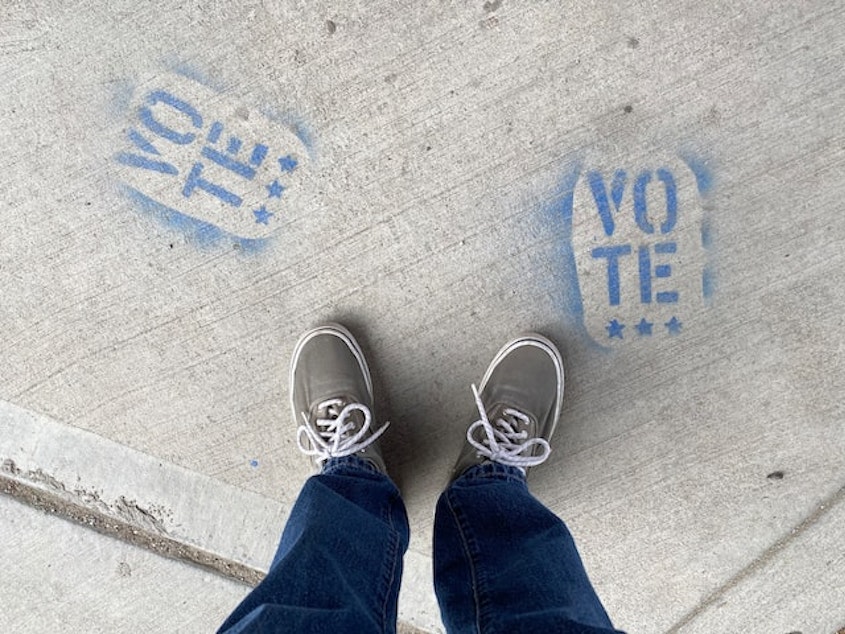‘Yes’ vote for Seattle election reform now leading

The latest King County ballot count shows the "yes" vote prevailing on a measure that would change the way the city of Seattle elects its leaders. Among the options, ranked choice voting has inched into in the lead.
On Saturday, for the first time since election night, the "yes" vote narrowly overtook the "no" vote 50.35 % to 49.65 %. That's about .7% difference among more than a quarter million votes that have been counted so far.
The measure asked Seattle voters if they approve of making changes to the city's primary elections. They were also asked if they preferred Proposition 1A, which would enact a system called "approval voting," or Proposition 1B, which would enact "ranked choice voting."
Proposition 1B (ranked choice voting) is currently winning with 75.42% of the vote to 24.58% for Proposition 1A.
Ranked choice voting is currently used in local elections in more than 20 cities and in two states, Maine and Alaska. It allows voters to rank their top candidates from most to least favorite. After the first count, the lowest performing candidate is eliminated. Voters who chose that candidate would have their second choice counted. Counting would continue through multiple cycles.
Sponsored
Proposition 1B’s main financial backer is FairVote Action, a Maryland-based group that contributed $390,000 to the campaign. This year the group also advocated for ranked choice voting reform in Clark and San Juan counties in Washington, but both of those efforts are failing. According to FairVote Action, ranked choice voting measures have succeeded in seven other jurisdictions, including neighboring Portland and Multnomah County, Oregon, and in Nevada, which will become the largest state to use the voting system.
Proposition 1B was put on the ballot by vote of the Seattle City Council. The competing measure, Proposition 1A, would also have allowed voters to choose more than one candidate during primary elections for Seattle mayor, city council, and city attorney. But in the so-called approval voting system, each vote is weighed equally, and the top two vote-getters move on to the general election.
Supporters argued that approval voting is a simpler system than ranked choice voting. It is only used in two municipalities, currently — St. Louis, Missouri, and Fargo, North Dakota.
Proposition 1A was put on the ballot by an initiative petition signed by voters. Its main funder was the Center for Election Science, a national group which donated $313,012 to the campaign.
Supporters of both measures claim they would improve how elections are conducted. They would give voters more choices and would encourage candidates to compete more widely for votes.
Sponsored
If both the 'yes' vote and Proposition 1B prevail in the vote count, ranked choice voting is expected to begin no later than the 2027 elections.




